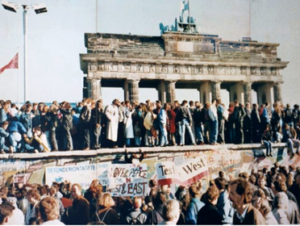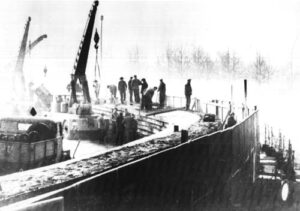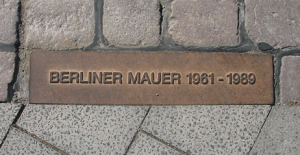By Aaron Baumgart
“[This] again proves my theory that Germans love David Hasselhoff,” concludes Norm Macdonald on his Saturday Night Live segment “Weekend Update” in the early 90s. The crowd roars with laughter, the punchline has become a favorite among them for quite a while. “Those silly Germans,” Macdonald’s eyes seems to say.
Over twenty years later, the joke might not be remembered but the sentiment certainly persists. Many Germans complain on their travel blogs about getting asked about “The Hoff” while traveling around the USA. Some of them barely know who he is. Indeed, today’s young adults might only faintly remember Hasselhoff for running around in red shorts, talking to cars, and having his drunken misdemeanors captured on camera. This has not always been the case.
 During the 1980s, both of Hasselhoff’s shows, Knight Rider and Baywatch, were largely celebrated in Germany. That is to say, not only in Germany. Baywatch was exported into 144 countries with over a billion people worldwide sitting in front of their TVs every week. His shows featured elements that were exciting for German viewers: futuristic technology and attractive young actors in very little clothing on sunny beaches. “The Hoff” consequently made his way into German magazines for teens – like Bravo and Mädchen – but so did John Travolta and Patrick Swayze. What made Hasselhoff so different?
During the 1980s, both of Hasselhoff’s shows, Knight Rider and Baywatch, were largely celebrated in Germany. That is to say, not only in Germany. Baywatch was exported into 144 countries with over a billion people worldwide sitting in front of their TVs every week. His shows featured elements that were exciting for German viewers: futuristic technology and attractive young actors in very little clothing on sunny beaches. “The Hoff” consequently made his way into German magazines for teens – like Bravo and Mädchen – but so did John Travolta and Patrick Swayze. What made Hasselhoff so different?
Read more »










